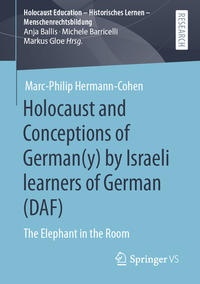
The Holocaust is inseparable from the Israeli identities even seven decades following the atrocities during World War II, Israeli daily life is shaped by the horrible crimes committed by the Nazis. This book conceptualizes the intricacies of the Israeli identity in relation to learning German as a foreign language (GFL) in Israel throughout the course of history and the changing conception of Germany. This book includes an analysis of a selection of twenty-five GFL language books which reflect the stigmatization and tabooization of the Holocaust and also the qualitative analysis of a subject pool of 105 learners of GFL. The author finds that identities are co-constituted by four individualized Thought Styles, a concept borrowed from Ludwik Fleck. Thought Styles capture the individual perspective of the language learner’s view of Germany and are categorized in this thesis as German Engineering, Cold Germany, Neo-Nazi Germany, and The Other Germany. The researchdraws from discourse theory, critical psychology, and the oft-overlooked classical theory of Ludwik Fleck. Although the relationship between Germany and Israel has been amicable for the last six decades, the choice for Israelis to learn the language that was used by a nation that once attempted to eradicate the Jewish people is emotive and infinitely complex.